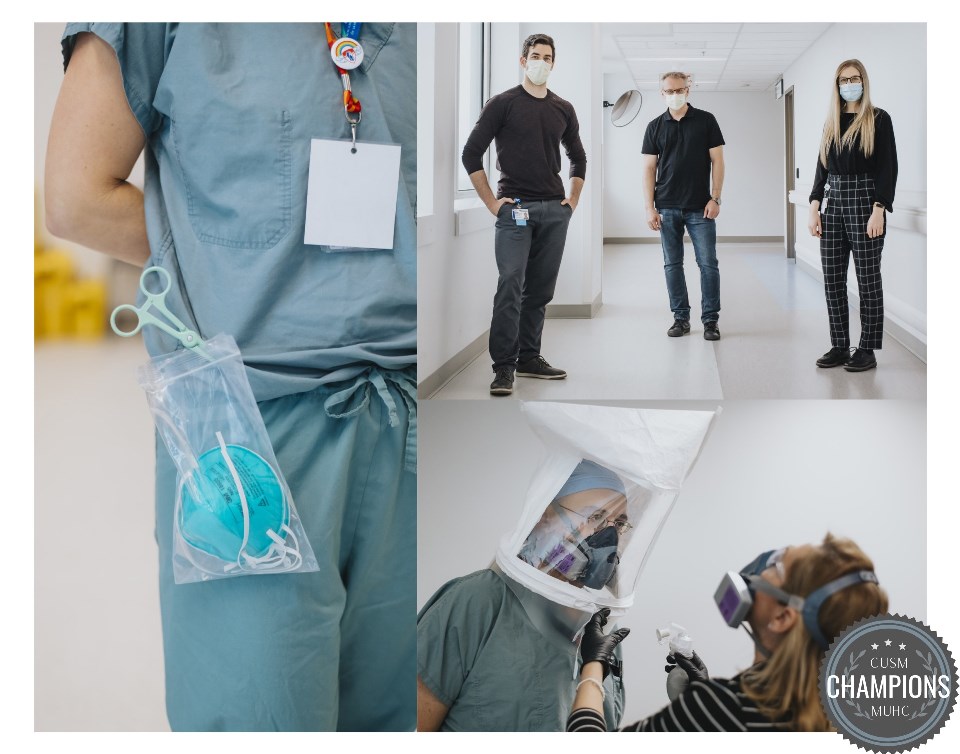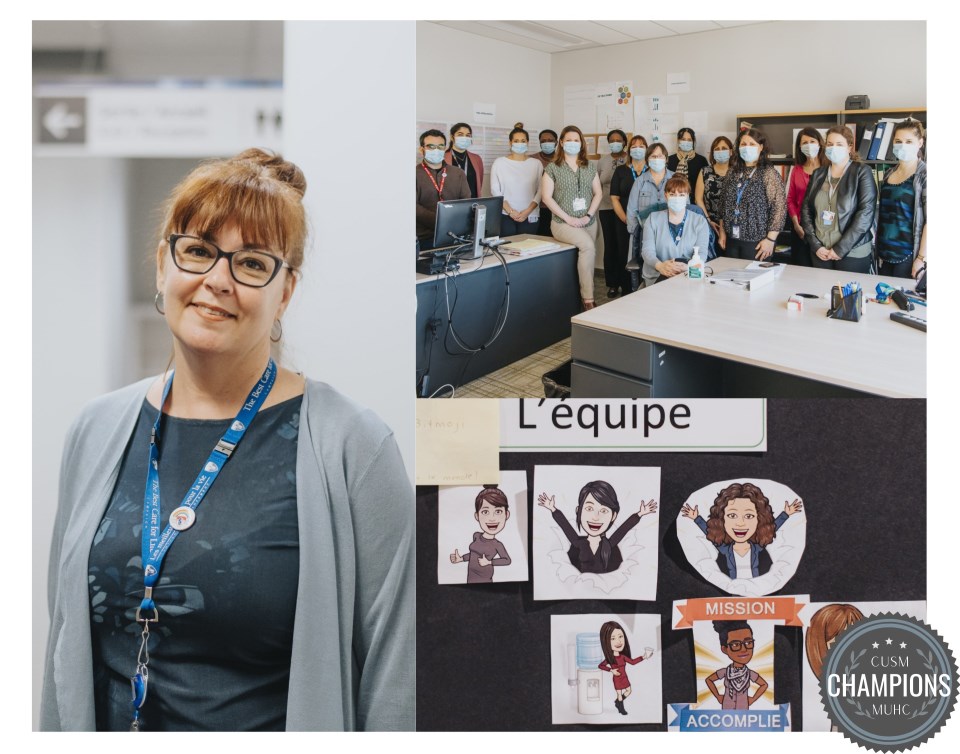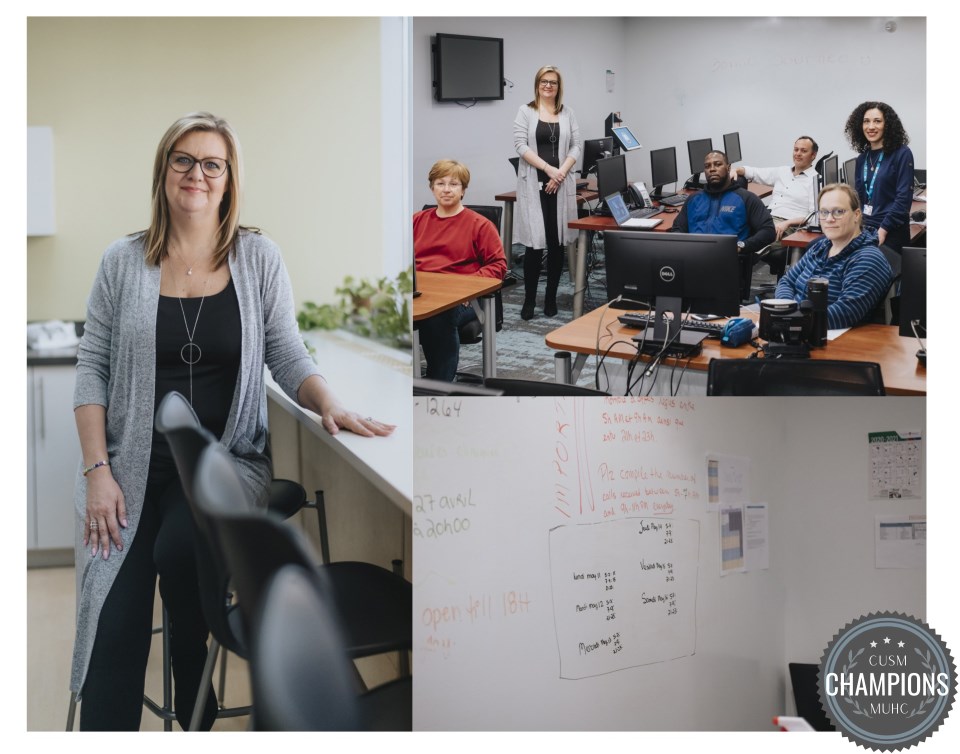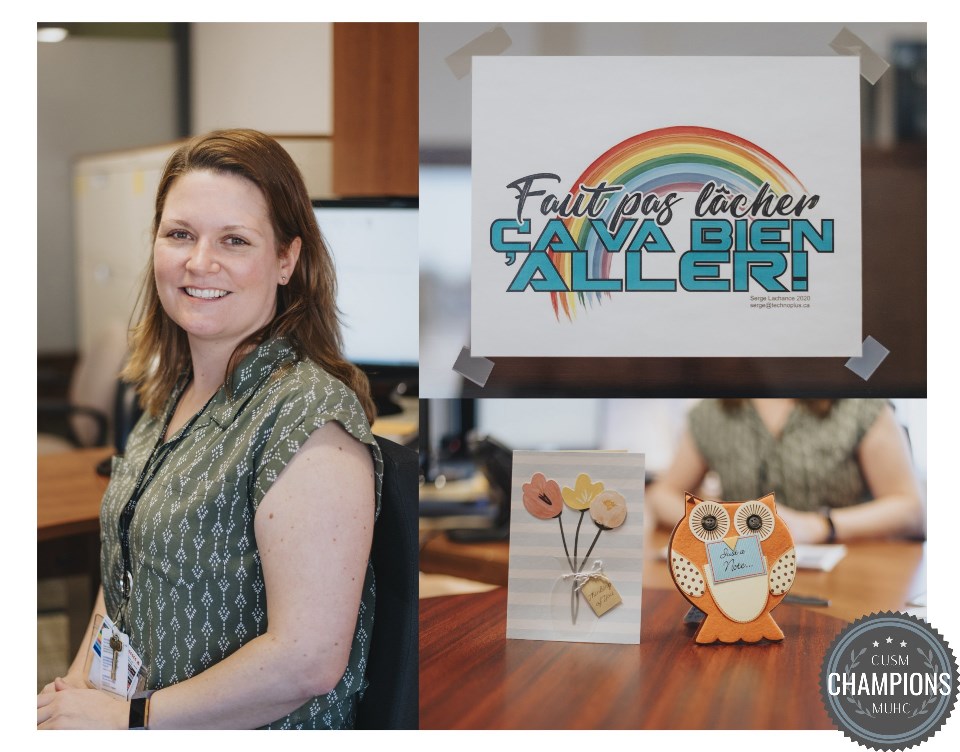MUHC Prevention and Health Promotion team: meeting the demands of COVID-19
Thanks in large part to the fastidious work of the Prevention and Health Promotion (PHP) department, the McGill University Health Centre (MUHC) has recorded a remarkably low level of nosocomial infections of COVID-19 . How? The team – formerly known as Occupational Health and Safety – honed in on its expertise, quickly adapted to new challenges and relied on collaboration and teamwork to champion the important task of keeping each worker who walks through the doors of the MUHC as safe and healthy as possible.
Normally, the PHP team ensures workers are healthy enough to perform their duties in demanding conditions by ensuring they have the necessary protection to remain healthy. They organize the annual flu vaccine campaign, which includes inoculating hundreds of staff against influenza, and assist those who may have come into contact with infectious diseases, like tuberculosis and the measles.
But the demands of COVID-19 were unlike anything ever seen by Line Breault, PHP manager at the MUHC.
“As much as we plan for this kind of situation, no pandemic plan prepared us for what we are facing,” says Line, whose team was inundated with calls from staff concerned about being infected with COVID-19. Quickly, it became clear that the PHP would have to focus on four main activities: Fit Testing; 44Flu; Tracking and Tracing; and the management of positive cases.
Fit testing and Protective equipment
N95 masks block 95 percent of tiny particles including bacteria and viruses and, to be effective, they require a Fit Test which ensures they are properly adjusted around the nose and mouth. Line quickly realized the team would have to grow.
“Prior to the pandemic, we had only one or two Fit Test experts on our team,” explains Line, “now, we are up to 10 people performing Fit Tests.” Not only did Line reassign staff members to become Fit Test experts, but she also hired external consultants.
The increased demand of N95 masks also required the development of creative solutions with so much need. The team had to familiarize themselves with different brands and designs of masks, and test various disinfection methods to weather the possibility of safely wearing masks more than once.
44FLU: A direct line to workers
What does a staff member do if they develop symptoms associated to COVID-19? They call 44FLU, a line that already existed for hospital workers who have been exposed to disease or sustained injury. Since the arrival of the novel coronavirus, the hotline has taken on an essential role in maintaining the health and safety of workers. Isabelle Simard stepped out of her role as management consultant for Business Partnership to manage the 44FLU line. To rally a team, she reached out to retired nurses and employees who were considered high-risk due to being immuno-suppressed or pregnant. Together, they opened a call centre and increased the hours of service to deal with the surge of calls.
“This new role came on abruptly with no time to plan,” says Isabelle. “We had to find solutions to problems as they came up, but the entire experience has been enriching and rewarding.”
The reference guide used by the staff taking calls changed as the situation evolved and is now in its 10th version. “Setting up and running the call centre and consistently updating the guide required a lot of work. This was a team effort that would not have been possible without the help of the administrative technicians and nurses who were reassigned from their roles to take calls,” adds Isabelle.
Tracking and tracing
“When an employee is showing symptoms, we must act quickly to stop the transmission chain,” explains Line. When a worker at the MUHC tests positive, the Tracking and Tracing team – led by Line with the support of Celine El Soueidi, Sophia El Moumni and Sophie Levesque – contacts the worker, establishes a list of all colleagues they may have been in contact with and performs a risk assessment. A worker that tests positive for COVID-19 will be asked to quarantine and, as a precautionary measure, so will each person they have come into direct contact with. The challenge in tracking and tracing resides in getting the facts and minimizing fear.
“Sometimes it is hard for the worker to remember all the details, and naturally those who test positive or who have been in contact with those who are positive, can be anxious and fearful,” says Line, “But the team remains understanding, calm and reassuring.”
OHS expo also manages the results and compiles data to provide daily updates to the Emergency Measures Coordination Centre (EMCC), the group of hospital administrators that decides on emergency measures during a time of crisis, which was activated for COVID-19 in March.
“Capturing test results, exposures, conversions, quarantines, hazard evaluations, and providing all supporting data is a crucial component to managing the spread of infection and maintaining the health of personnel,” says Line.
Managing positive cases
When someone from the MUHC tests positive for COVID-19, they are contacted by the Follow-up team led by Karen Billingham and made up of one other nurse, Nathalie Perkins. Karen is a nurse clinician by profession with experience in OHS, which is why she was asked to temporarily leave her post as Manager of Replacement Activities and Internal Movement to join the battle against COVID.
Karen manages the files of those who test COVID-19 positive, helping guide them back to health and back to work. Working closely with the MUHC infection control team, Karen assesses symptoms and informs the infected worker on how to manage them.
“Our approach is personalized; people can be anxious or frustrated throughout their quarantine,” says Karen “We want to make sure they have all the resources they need to get better.”
The duo also sends personalized Get Well cards to the workers whom they know are especially sick. After a period of at least two weeks, the infected worker must receive two consecutive negative tests, collected at an interval of at least 24 hours, before getting the OK to return to work. “It’s very satisfying when we bring a worker back to health!” says Karen.
From fit tests to getting workers back to health, the Prevention and Health Promotion department and all those who have been contributing to their efforts are true Champions for supporting the health and well-being of each and every MUHC worker.

From left to right: Vincent Mandeville Gauthier, Michel Jacques, and Emily Galipeau, part of the Fit Test team, and actively participate in finding solutions to the increased needs for masks.




